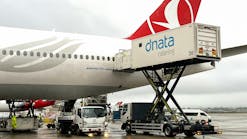Years of underinvestment in the Federal Aviation Administration has led to an air travel system that is struggling under intense and growing demand—as a record-breaking season for summer travel approaches.
According to a new U.S. Travel survey from Ipsos—the results of which were shared during the association’s quarterly Travel Outlook media roundtable—over half of all Americans (53%) and 81% of leisure travelers have travel planned in the next six months. Over a quarter of Americans (26%) plan to increase the amount they spend on leisure travel in the next three months as well.
This new survey comes just weeks after the Federal Aviation Administration (FAA) asked airlines to pull back slots at airports in New York and Washington, DC, this summer due to a lack of air traffic controller staffing.
“Americans are paying the price of years of chronic underinvestment—in technology and staffing—by the federal government in our nation’s air travel system,” said U.S. Travel Association President and CEO Geoff Freeman. “Air travelers are right to be frustrated and to demand more from Washington.”
Specifically, Freeman cited a lack of funding for the FAA overall, insufficient funds for air traffic control staffing, and increasing demands on FAA resources, including new technologies like drones and advanced air mobility.
While demand is strong now, there is concern these inefficiencies could drive travelers away in the long term. Over half of Americans (52%) say they would travel more for leisure in the next six months if the travel experience was not as much of a hassle, significantly more than survey results reflected in Q1 (29%).
Freeman also cautioned that lengthy wait times for arriving passengers at U.S. customs checkpoints—a result of understaffing and diversion of resources by Customs and Border Protection—at gateway airports is a growing concern, compounding the full recovery of international inbound travel to the U.S.
Correcting the problem
The federal government has a critical opportunity to correct decades of federal underinvestment with this year’s FAA reauthorization bill.
The U.S. travel industry’s top three asks for this year’s FAA reauthorization bill:
- Provide at least $50 million per year for aviation workforce development programs to increase the supply of qualified pilots and mechanics.
- Provide $4.5 billion in funding for air traffic control infrastructure and technology. Also provide enough funding to hire 1,800 new air traffic controllers per year over the next three years, while fixing the staffing model to ensure the controllers are in the right places.
- Provide at least $4 billion per year in Airport Improvement Program Grants and enable medium and large-hub airports, which serve the majority of passengers, to keep more of their grant funding.
Travelers demand these upgrades to the air travel system as well.
When asked what Congress should prioritize in FAA reauthorization, a majority of recent air travelers (55%) want Congress to prioritize improvements to the air travel experience by addressing hassles such as reducing flight delays and cancellations (19%), offering more direct flights by addressing the pilot shortage (21%) or reducing congestion in airports (15%).
“The success of America’s travel industry requires an air travel system that is modern, efficient, dependable and secure,” said Freeman. “Congress can make the critical investments now for our air travel system to meet demand for the future—and ensure that our economy can continue to grow.”




